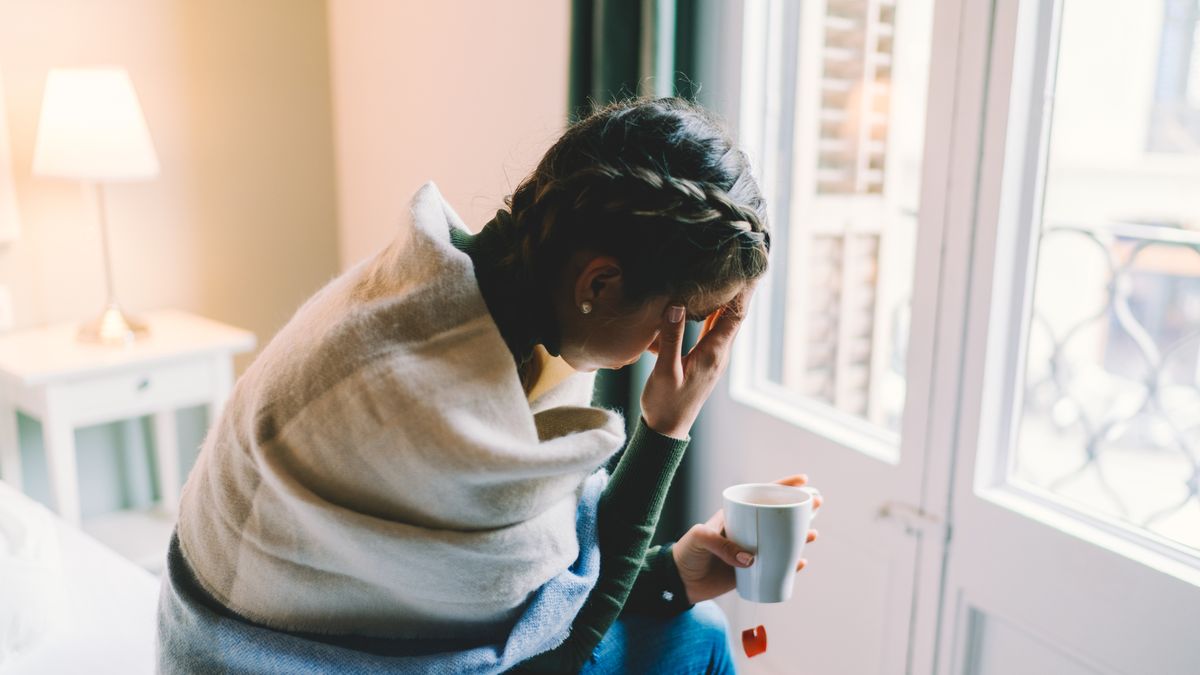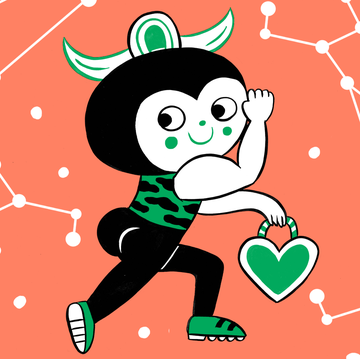Miley Cyrus really knew what she was talking about when she raspily crooned the lines, “Nothing breaks like a heart.” Perhaps your ex just dumped you, or you found out they were cheating on you with someone else. (Ouch.) Or maybe you took a risk and confessed your love to someone who doesn’t feel the same way, or someone who just can’t return those feelings, like an emotionally unavailable friend or coworker.
Whatever the scenario may be, there really is nothing worse than heartbreak. You can’t eat; you can’t sleep. You can’t stop checking your phone to see if maybe, just maybe, they’ll text you one more time. You feel so sick that you have to fight the urge to puke your guts out. It feels like your heart is wrenched in your stomach, threatening to shatter into a million little pieces, and no amount of vegan mint chocolate chip ice cream or wholesome episodes of Abbott Elementary is fixing the situation. You can’t help but wonder: Is there something wrong with me? Why am I feeling this way? And is there a way to stop this terrible, horrible, no good, very bad feeling?
Good news: You’re not alone, and it’s normal if you’re feeling all the feels right now. If you resonate with any of the above, you might just have a nasty case of lovesickness. Yep, lovesickness—it's a real thing.
While the term lovesickness is often thrown around casually and can mean different things colloquially, it’s also a psychological condition that can have biological consequences. “Lovesickness, while not typically recognized clinically as a mental disorder, is considered a very real and true experience,” says Shelley Sommerfeldt, PsyD, a clinical psychologist, relationship coach, and founder of the Loving Roots Project, a virtual wellness practice.
Meet the Experts:
Shelley Sommerfeldt, PsyD is a clinical psychologist, relationship coach, and founder of the Loving Roots Project, a virtual wellness practice.
Sarah Gundle, PsyD is a New York-based clinical psychologist who specializes in breakups and trauma.
Ahead, read more about lovesickness, including what it is, how long it lasts, and how to alleviate its symptoms, according to psychological experts.
What does it mean to be lovesick?
Although lovesickness isn’t defined as an official medical condition, it is a very real, all-consuming phenomenon that can trigger reactions in your body. Hence its name, lovesickness really can feel like a physical illness or aching.
“Feeling lovesick isn’t a clinical condition, but it is a biological response, which can produce a host of physical symptoms... including heart palpitations, shortness of breath, stomach pain, loss of sleep, and depression,” explains Sarah Gundle, PsyD, a clinical psychologist who specializes in breakups and trauma. “There may also be obsessive thoughts, anxiety, and loss of appetite.” So, your inability to eat or sleep? Totally valid.
“Lovesickness is often described as being profoundly heartbroken, experiencing intense grief, and being consumed by thoughts or feelings related to a romantic partner and a longing to be with them again,” Sommerfeldt adds.
If you’ve heard of limerence—typically defined as a mental state of obsession with another person—this might sound a bit familiar. There’s a major difference, though, between limerence and lovesickness, although both can result in physical and psychological symptoms. “Limerence and lovesickness are not the same concepts,” Sommerfeldt says. “Limerence is the idea that we become fixated on another person, and the feelings we experience can feel similar to love, but it is more a state of infatuation and is often described as being obsessed with another person.”
“There is usually an addictive quality, a painful obsession that comes from uncertain attachment to limerence that differentiates it from lovesickness,” adds Gundle. Think of limerence as a type of infatuation, while lovesickness is more synonymous with heartbreak.
What are the signs of lovesickness?
If you’re not sure that what you’re feeling is lovesickness, a few telltale signs “include frequent and persistent thoughts about your romantic interest and a sense of longing for them,” Sommerfeldt says.
There are also very physical, biological reactions you might experience while going through heartbreak. Some potential symptoms, per Sommerfeldt, include:
- Difficulty sleeping
- Restlessness
- An inability to concentrate
- Increased tearfulness
- Pain or tension in the chest
- Mood and appetite changes
In more severe cases, you might also experience increased depression and anxiety, adds Gundle.
Is there anything I can do to heal from lovesickness?
Unfortunately, healing from a case of lovesickness isn’t as easy as taking some cough medicine to get over a cold. Thankfully, though, there are a few simple things you can do to help yourself get through this rough patch. Gundle and Sommerfeldt suggest some options to cure lovesickness below:
1. Engage in some extra self-care.
Taking care of yourself is one of the most important things you can do when undergoing a bout of heartbreak.
If you’re not sure where to start in your self-care journey, think about activities that make you feel happy and relaxed. “Some examples of self-care include exercising, reading, journaling, meditating, eating healthy meals, and listening to soothing music,” says Sommerfeldt. “These activities can also serve as a distraction to help you get your mind focused on different topics rather than ruminating on your love interest.”
2. Cut off communication and set clear boundaries for yourself.
I’m not trying to be harsh, but no more drunkenly texting your ex or stalking your crush’s IG profile—it’s time to set some boundaries. Both Gundle and Sommerfeldt agree that distancing yourself from the source of your lovesickness can help encourage the healing process. “You should restrict yourself from checking their online profiles or trying to communicate with them,” says Sommerfeldt. Mute, unfollow, block, delete, unsubscribe—do whatever you need to do to keep your ex-lover out of sight, out of mind.
Beyond social media, there are other ways to distance yourself. “It can often be helpful to get rid of reminders of your love interest, such as taking down photos you may have,” Sommerfeldt suggests. Clean out your camera roll, burn the pictures, and toss your ex-partner’s sweatshirt in the Goodwill pile. (I know it’s comfy, but you don’t need it.)
3. Practice mindfulness.
Mindfulness exercises like meditation and practicing gratitude can help you recenter, as well as even distract yourself from all those negative thoughts that lovesickness can stir up, says Gundle. If you’re new to practicing mindfulness, Gundle recommends downloading a mindfulness or guided meditation app. In fact, researchers have discovered that mindfulness can even reduce anxiety and depression—both of which can be triggered or intensified by feeling lovesick.
4. Spend time with family and friends.
Leaning on your support system is so important during hard times, and especially when experiencing lovesickness. “Talking about what you’re experiencing and how you feel is integral to processing and releasing emotions,” Sommerfeldt says. Being with people you love (and who love you!) can also help boost your overall mood, she adds.
In a long-distance friendship? Even just a quick phone call with your bestie can help you feel less alone, says Gundle.
5. Seek out a professional.
If your symptoms of lovesickness are severe or worsening—or if none of these other tips sound sufficient—it may be worth seeking out support from a therapist or mental health professional, says Sommerfeldt. They can give you coping skills to heal, or even just provide a listening ear.
How long does lovesickness last?
Between snotty sniffles and another box of tissues, you’ve likely desperately wondered, When will I stop feeling like this?!
Well, there’s no exact timeline for how long lovesickness lasts. For some, it can take a few weeks to overcome a spell of lovesickness; for others, maybe even months (or years), according to Sommerfeldt. “The amount of time someone may experience lovesickness can vary greatly depending on the situation and the person,” she says.
Just like the amount of time it takes to fall in love varies, everyone goes through heartbreak at different paces. When in doubt, just remember that it’s totally normal if it takes a while for your heart to feel whole again—but it will.
Zoë Hecht is a California-based writer and editor who enjoys writing about beauty, fashion, lifestyle, and pop culture. She graduated from Loyola Marymount University, where she received her B.A. in English. Other than Women’s Health, her work can be found on Byrdie, Teen Vogue, and more. When she’s not writing, you can find her reading, sipping coffee, and scrolling through Pinterest.












